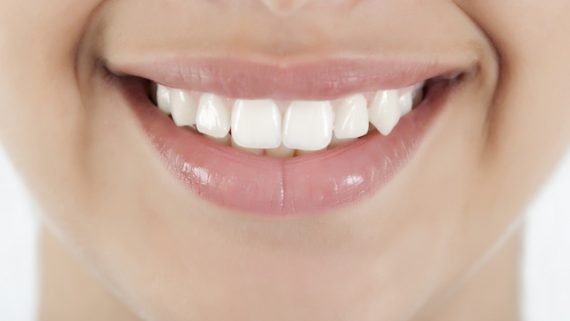 What is peer pressure?
What is peer pressure?
A peer is someone in your own age group that you hang out with. Peer pressure is the feeling that you are being pushed towards making a certain choice, good or bad. Peer pressure might be difficult to avoid, especially for teenagers, because people in general like to “fit in” and be liked by their peer groups. Sometimes you don’t even know that it is happening, or that you are making choices because of peer pressure. Your peers might even use your desire to fit in to make you do things that you don’t want to do.
Examples of Negative peer pressure:
- Doing things you do not want to do.
- Feeling pushed to wear “the right” clothes.
- Missing school.
- Extreme dieting or bodybuilding.
- Teasing, bullying or hurting other people.
- Trying cigarettes, alcohol, or drugs.
Am I prone to peer pressure?
Certain personality traits and factors make a person more likely to give in to pressure. Recognizing these risk factors will help you make the first step in fightin
 In a Healthy Relationship, You have the Right to:
In a Healthy Relationship, You have the Right to:
- Be treated with respect and as an equal
- Express your opinions and feelings
- Not be hurt physically or emotionally
- Have friends and activities outside of the relationship
- To refuse sex or any degree of intimacy at any time
- To end a relationship
Tips for Starting a Healthy Relationship:
- Get to know the person better before starting to date
- Try some group activities before going out alone with the other person
- Explore each other’s interests
- Build a foundation of respect and appreciation
- Be clear with him/her about what you feel comfortable doing
- Encourage the other person to be honest with you
- Let him/her know what time your parents expect you to be home
- Stay safe, let your friends/parents know where you are going and who you are going with
The Importance of Open Communication:
Open communication is the key to a hea
I don’t know what to talk to my parents about.
Parents are most interested in their children’s lives at school or work, but there are many other things that you can use to start a conversation:
- Common interests you share with your parents: sports, music, movies, books, traveling, collections, etc.
- Something you find interesting: a new movie, video game, current event, or story you heard.
- Watch TV together and talk about the shows.
- Ask your parents about their day.
- Help set the table while your parents prepare dinner, ask what else you can do.
Whenever I tell my parents anything, they start asking a lot of questions.
Understand that when your parents ask about your life, they are just interested in your activities and want to show support. It is not their intention to pressure you, and they may not even realize that you find their questions intrusive. If you think that not telling them anything at all is the answer, you are wrong! They may think that you are hiding something and start to set rules that you feel are unreasonable. Not communicating will just make matters worse. Let your parents know how you feel, and be patient and kind when you do this. The more information you offer, the less they need to ask. Talking to them about everyday things also show them that
 Bullying is a problem affecting many youths and can have lasting impact on their lives. In the United States, 20.1% of high school students in grades 9-12 reported they were bullied on school property and 16.2% reported they were bullied electronically through e-mail, chat rooms, instant messaging, websites or texting (Youth Risk Behavior Surveillance, Center for Disease Control, 2011). To prevent bullying, it is necessary to understand the problem and know what steps to take to stop it.
Bullying is a problem affecting many youths and can have lasting impact on their lives. In the United States, 20.1% of high school students in grades 9-12 reported they were bullied on school property and 16.2% reported they were bullied electronically through e-mail, chat rooms, instant messaging, websites or texting (Youth Risk Behavior Surveillance, Center for Disease Control, 2011). To prevent bullying, it is necessary to understand the problem and know what steps to take to stop it.
What is Bullying?
Bullying is when someone repeatedly harms another person either physically or emotionally due to an imbalance of power. Actions such as physically or verbally attacking someone, spreading rumors, and purposely excluding someone from a group are examples of bullying. Recently, technology has opened up a new venue for bullying through the use of the internet, social media sites, and messaging, which is referred to as cyberbullying. The source of cyberbullying is difficult to locate and any harassing remarks or photos once they are posted online are hard to delete.
Who is lik
Posted in Dating and Relationships, Health Topics by CCHRC | Tags: abuse, bully, bullying, cyberbully, harassing
 Cigarette smoking is often portrayed as cool and hip. While it is illegal to advertise cigarettes on TV, tobacco companies are finding different ways to tempt young people to smoke. They have created cartoon characters and cigarette shaped bubble gum, both of which are now banned by the government. You can also see your favorite actor or actress smoke in the movies. These are just some of the ways tobacco companies use to get young people to light up for the first time. Nicotine is one of the many chemicals that you inhale when you smoke. This chemical is highly addictive. Tobacco companies know that it is so addictive that once you start, it will be really hard for you to stop. Studies have shown that most adult smokers started smoking when they were preteens or teenagers.
Cigarette smoking is often portrayed as cool and hip. While it is illegal to advertise cigarettes on TV, tobacco companies are finding different ways to tempt young people to smoke. They have created cartoon characters and cigarette shaped bubble gum, both of which are now banned by the government. You can also see your favorite actor or actress smoke in the movies. These are just some of the ways tobacco companies use to get young people to light up for the first time. Nicotine is one of the many chemicals that you inhale when you smoke. This chemical is highly addictive. Tobacco companies know that it is so addictive that once you start, it will be really hard for you to stop. Studies have shown that most adult smokers started smoking when they were preteens or teenagers.
A Word of Advice:
- No birth control method is guaranteed to work 100% of the time, except for abstinence (not having sex).
- Most types of contraceptives do not offer protection against STDs. Using a condom every time is an effective way to reduce your risk.
- No matter which method you choose, make sure you follow the instructions carefully to maximize its effectiveness
Below are some common methods for birth control. Discuss with your health care provider about other options and find out which method is the best for you.
Oral Contraceptives (Birth Control Pills)
Birth control pills are small tablets that women take once daily to prevent pregnancy. They are considered a very effective and convenient means of contraception. There are many different types of birth control pills, but they all work in a similar way: they contain one or more female hormones that stop ovulation (the process through which the ovary releases an egg) and prevent s
 The teen growth spurt is one of the most dramatic changes that the human body experiences. To support this major change, the body requires increased calories and nutrients. Maintaining a healthy diet not only contributes to your physical growth, but it can also help you feel better, stay healthier, and perform better at school. Below is a list of quick tips to get you started:
The teen growth spurt is one of the most dramatic changes that the human body experiences. To support this major change, the body requires increased calories and nutrients. Maintaining a healthy diet not only contributes to your physical growth, but it can also help you feel better, stay healthier, and perform better at school. Below is a list of quick tips to get you started:
- Eat regular meals, especially breakfast.
- Eat a variety of foods.
- Get lots of calcium.
- Choose fiber-rich foods.
- Drink plenty of water.
- Limit consumption of fast foods and junk foods.
Eat Regular Meals:
To meet the energy needs, teens should eat at least three meals per day: in the morning, afternoon, and evening with light snacks in between. This is the best way to maintain both energy levels and a healthy weight. When you skip meals and are overly hungry, you are more likely to choose foods that are not as healthy. Also, it is very important for you to eat breakfast! Studies show that eating breakfast can help you stay more alert at school and bette
“What is acne?”
“Why do people have asthma?”
“Am I suffering from depression?”
“How do I maintain a healthy relationship?”
Do you have any of these health-related questions and don’t know who to ask? Have you ever been too embarrassed to ask a question? In this section, you will find answers to a lot of the health topics that you and persons your own age are interested in knowing. Click through the topics and check them out!
What Are Cavities?
Cavities are structural damages in your teeth due to tooth decay. At any given time, there are many bacteria present in the mouth. These bacteria convert the sugar from food debris into acids, which attack the outer coating of the tooth (the enamel) and cause tooth decay. A combination of factors contributes to formation of cavities, including not cleaning your teeth well and frequent snacking or drinking of sugary beverages. Symptoms include visible pits in the teeth and toothache after consuming sweet, hot, or cold foods and drinks. If cavities are not treated, they can lead to large holes on the tooth and complications such as severe toothache, infection, and tooth loss.
Who Gets Cavities?
Anyone can get cavities, from infants to older adults. Cavities and tooth decay are one of the most common health problems around the world. They are especially common among children and young adults who do not pay attention to oral hygiene. Individuals with gum diseases, such as receding gums causing exposure of roots
 What is body image?
What is body image?
Do you think you’re too fat? Have you ever tried to lose weight? When you look in the mirror, do you like what you see? As the body experiences dramatic changes in height, weight, and shape during the teenage years, our image of ourselves also changes in the process. Body image is our personal view of our body and, more importantly, our belief about how others perceive our appearance. Body image can be closely linked to self-esteem, especially as teens grow into adolescence and become more concerned about how others see them.
How does negative body image relate to self-dissatisfaction?
Body image is often measured by asking people to rate their current and ideal body shape using a series of pictures. The difference between these two values reflects the amount of body dissatisfaction. Studies have shown that the majority of people are dissatisfied with their appearance, especially their weight. Teenage girls, in particular, see themselves as heavier than what they would like to be. The dissatisfaction with we









